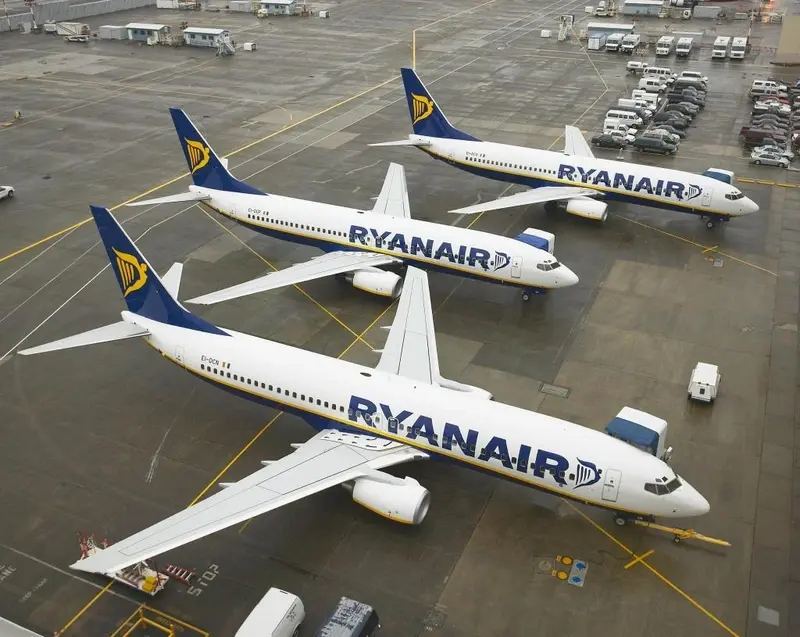
Shares in UK-listed airlines have taken a knock after low-cost operator Ryanair (RYA) revealed a 20% drop in profit after tax to €319m in the quarter to 30 June, which was affected by higher oil prices and pilot costs.
Ryanair fell 5.6% to €14.62 and was followed lower by rival EasyJet (EZJ), down 2.4% to £15.75.
British Airways-owner International Consolidated Airlines (IAG) lost 2% to 673.2p and Wizz Air (WIZZ) fell 1.8% to £36.52.
Average fares at Ryanair fell 4% to below €29, fuel prices have increased by approximately 60% and staff costs have gone up by 20%.
The company has downgraded guidance for fares to rise by 1% (previously 4%) and it warns that ancillary revenues (i.e. non-ticket income) won’t offset a €430m higher fuel bill or a 6% increase in ex-fuel unit costs.
RISKS FROM BREXIT, STRIKERS AND OIL PRICES
The danger of a ‘hard’ or no deal Brexit is also looming over the airline’s outlook with Ryanair warning it may be forced to restrict voting rights to ensure control by EU shareholders.
In a further bout of bad news, Ryanair warns it expects further ‘unnecessary strikes’ as progress with pilots in smaller markets are slower than expected.
Unfortunately if the strikes continue, flights over the traditionally quieter winter period could be cut amid potential job losses.
AJ Bell investment director Russ Mould says cutting costs may be necessary to deal with several headwinds despite doing a good job of making money from passengers beyond the air fare.
‘Steps are already being taken by ordering new aircraft which have more seats and lower fuel costs, although they aren’t due for another few years,’ comments Mould.
Canaccord Genuity analyst Gert Zonneveld argues Ryanair’s longer term outlook remains attractive thanks to its low cost base and growth opportunities at several airports.




